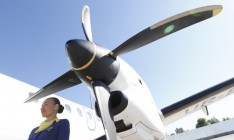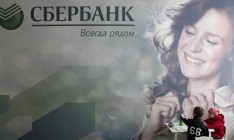Business
RicochetThe latest EU sanctions against Russia may inflict damage on Ukrainian companies

Ukrainian companies may feel the impact of the EU sanctions against Russia. The new list, which came into effect last Friday, includes the three largest defense companies of Russia: Uralvagonzavod, Oboronprom and the United Aircraft Corporation (UAC). These enterprises are prohibited to attract debt financing from EU banks, hold tenders for bonds with a maturity of more than 30 days and participate in the issuing of such securities.
UAC Vice President for Economic and Financial Affairs Dmitry Yeliseyev, quoted in the official report of the corporation, says the limitation of borrowing for UAC on foreign capital markets will not have any significant impact on the financial activities of the corporation. He says the demand for borrowed funds is almost completely covered by the capital markets of Russia and the share of the loan portfolio attributable to non-resident banks is less than 1%. Nevertheless, certain experts regard such a statement as an attempt to put up a brave front.
Brave new world
Ukrainian partners of the corporation are full of optimism. A number of Ukrainian companies are cooperating with the UAC. The Antonov State Enterprise (SE), the Kharkiv State Aviation Company (KSAC), Motor Sich (which also supplies engines for Yak-130) and the Kharkiv Machine-Building Factory FED, are involved in the project for the manufacturing of AN-148 and AN-140 airplanes in Russia.
Representatives of Ukrainian plants hope that the EU sanctions against Russian companies will not affect the sales of Ukrainian products in Russia. «We believe the EU measure will have no impact on the delivery of our products,» said President of Motor Sich Vyacheslav Bohuslayev in an interview to Capital. «The UAC pays us in rubles received exclusively from Russian banks».
The Antonov SE has not commented on the issue so far. In a conversation with Capital, Assistant Chief Designer Oleksandr Kiva said that more time is needed to assess the situation. Today, the Ukrainian company continues to work with the UAC on civil projects, while it suspended activities in military-technical programs at its own volition. Kiva says the Russian side is not experiencing any delays in payments for existing joint projects.
Poor play
Senior partner at the Ilyashev & Partners Law Firm, which represents the interests of Antonov, Roman Marchenko said in a conversation with Capital that Ukraine may be affected by the sanctions against UAC only if the aircraft production in Russia, where Ukrainian components are involved, is fully suspended. Marchenko predicts that the aircraft corporation in Russia may suffer more from its reputation being tarnished. Foreign customers will stay clear of the company, as it fell within the scope of sanctions, the lawyer says. This means that UAC’s plans to sell aircraft to Brazil, Vietnam and Cambodia may be jeopardized.
Industry experts have a similar opinion. Presuming that the financial standing of Russian state-owned banks continues to deteriorate and the EU sanctions last long enough, it cannot be ruled out that the purchase of Ukrainian components will be suspended, said CEO of the Russian consulting company Infomost Boris Rybak, commenting on the situation in a conversation with Capital.
Certain difficulties may arise in the near future. The expert says that other Russian companies against which the sanctions have been imposed will have to attract more domestic loans, which will greatly increase the burden on Russian state-owned banks that cannot attract foreign loans, which will inevitably lead to an increase of the cost of borrowed money.
Compared to other military and civil projects of the Russian corporation, the production of AN-148 and AN-140 aircraft could be considered less strategic, says Senior Analyst at the Art Capital Investment Group Oleksiy Andriychenko. He points out that the main leverage of the UAC consists of borrowings and loans, of which RUR 125 bn is denominated in foreign currency (dollars, euros and British pounds) and the ratio of the net debt to EBITDA at year-end 2013 is 2–3 times higher than the acceptable standards. «This means that the blow on the corporation will be essential and the company will ask for government aid.
Since the UAC is involved in military state programs, it will certainly be supported, but there is a possibility that some of the programs, including construction of AN-148 and AN-140 aircraft, may be jeopardized,» sums up Andriychenko. Under such circumstances, Motor Sich may lose nearly 10% of its annual turnover, which is equivalent to US $100 mn, according to the expert.
Time for a change
Joint Russian-Ukrainian aircraft building projects have for the most part never been profitable, as annual sales of jointly constructed aircrafts can be counted on one hand. For this reason, Rybak believes that under the current circumstances, with a political standoff between the two countries, there will be no interest in the development of such projects and it is more likely that they will simply be frozen.
Marchenko believes that Ukraine can engage in the full construction of aircrafts provided that it finds a partner that has the experience and the knack for sales. Global leasing companies and direct customers could be potential buyers. In his opinion, the best option would be to create a state-owned leasing company that would promote Ukrainian aircraft in overseas markets.
«The severance of relations with the UAC will help Ukrainian companies diversify the geography of their supplies much faster, but in the short-term it will be a painful blow,» says Andriychenko. «After all, the country will need multimillion investments for setting up serial production of aircraft». Industry analysts say that little will change in the short-term, but if Antonov shuts down completely due to the loss of Russian supplies, it has no other way out but to be reorganized in order to attract external loans. «We should not rule out partial privatization involving a foreign strategic investor that may rejuvenate the company,» says Andriychenko, «But in this case there is no guarantee that when the company gets back on its feet it will continue to manufacture AN aircraft».






 of the agreement of syndication with Financial Times Limited are strictly prohibited. Use of materials which refers to France-Presse, Reuters, Interfax-Ukraine, Ukrainian News, UNIAN agencies is strictly prohibited. Materials marked
of the agreement of syndication with Financial Times Limited are strictly prohibited. Use of materials which refers to France-Presse, Reuters, Interfax-Ukraine, Ukrainian News, UNIAN agencies is strictly prohibited. Materials marked  are published as advertisements.
are published as advertisements.